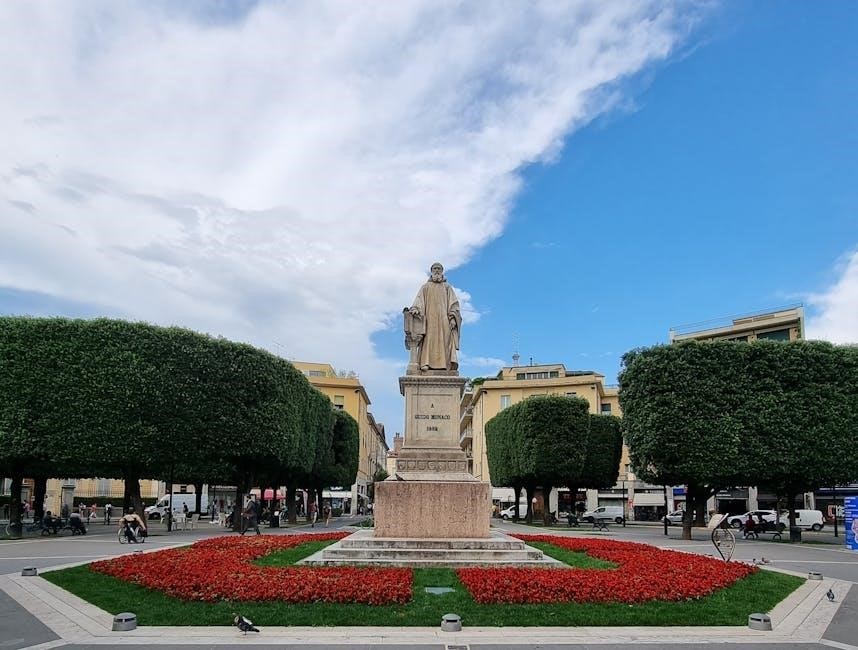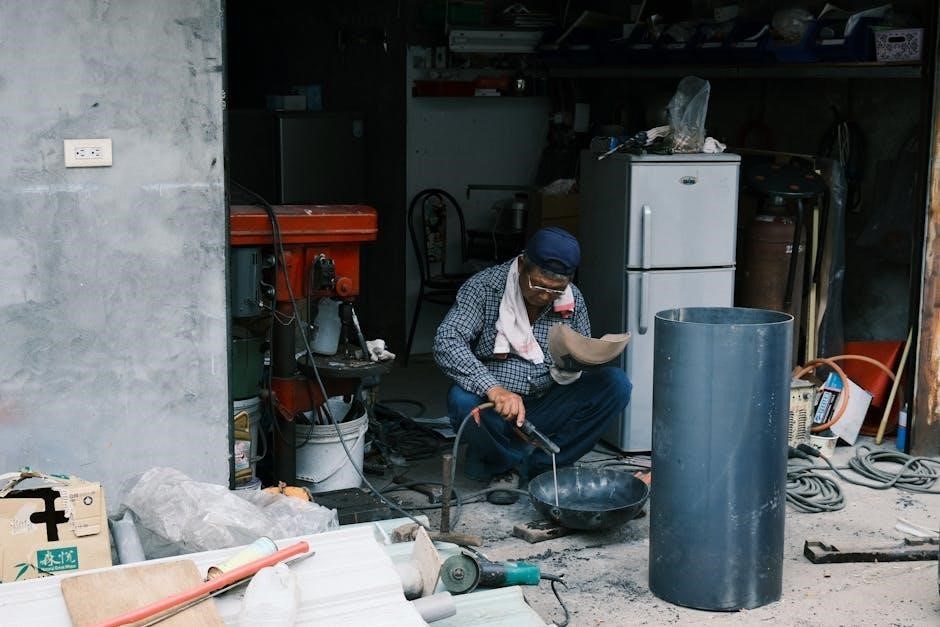Guido Orefice is a Jewish man living in Tuscany during the early years of World War II. Known for his big-hearted nature, he captivates audiences with his optimism and humanity. His story, set against the backdrop of war, explores themes of love, resilience, and hope, making him a memorable figure in modern storytelling.
Guido’s life is marked by his romantic relationship with Dora and the birth of their son, creating a narrative rich in emotional depth. His character embodies the strength of the human spirit, even in the face of adversity, leaving a lasting impact on those who experience his journey.
1.1 Who is Guido Orefice?
Guido Orefice is a young Jewish man living in Tuscany during the early years of World War II. He is known for his charming and optimistic personality, which sets him apart in a time of turmoil. Guido is a loving father to his son and a devoted partner to his wife, Dora. His character is central to the narrative of resilience and hope, making him a memorable figure in modern storytelling. Through his actions and demeanor, Guido embodies the strength of the human spirit, even in the face of adversity.
His story, deeply intertwined with the historical context of WWII, highlights his unique approach to life’s challenges, showcasing his humanity and determination.
1.2 Historical Context of Guido Orefice
Guido Orefice’s story is set against the backdrop of World War II, specifically in the early 1940s in Tuscany, Italy. During this time, the onset of the war and the rise of fascism created a tense and dangerous environment, particularly for Jewish individuals like Guido. The Holocaust loomed large, and the Jewish community faced increasing persecution and segregation. Despite these challenges, Guido’s narrative offers a unique perspective on survival, hope, and humanity amidst one of history’s darkest periods. His experiences reflect the broader struggles faced by Jews during WWII, while also highlighting the resilience and strength of individuals in the face of adversity.
The historical context of Guido’s life underscores the tragic realities of the Holocaust, yet his story also serves as a testament to the enduring power of hope and love during such times.
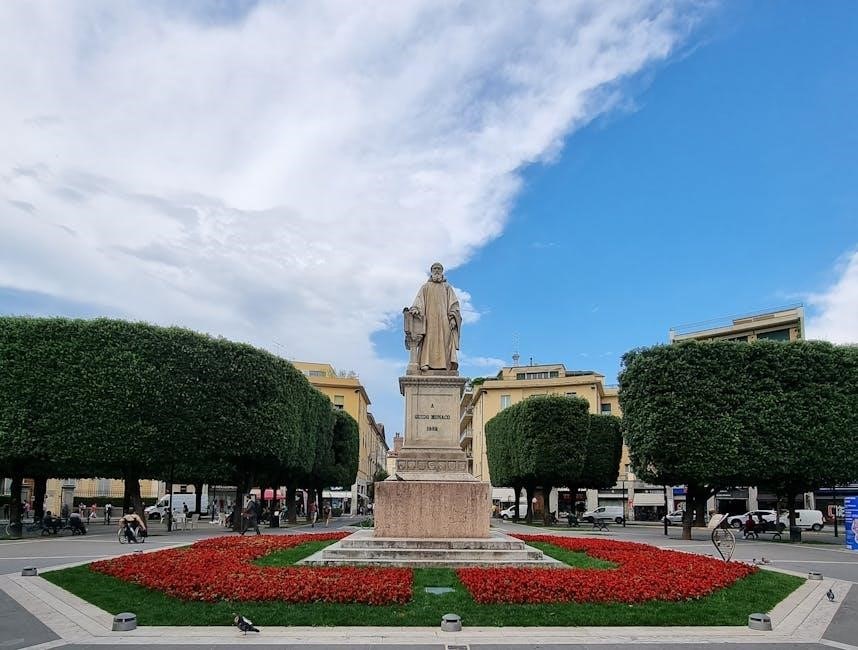
Guido Orefice’s Background and Personal Life
Guido Orefice, a young Jewish man, resides in Tuscany with his uncle before World War II. His life is centered around family, love, and resilience, shaped by his romantic relationship with Dora and their young son.
2.1 Early Life and Family
Guido Orefice’s early life was marked by a close-knit family and a serene upbringing in Tuscany. His relationship with his uncle, with whom he lived, provided stability and support. Guido’s charisma and optimism were evident from an early age, shaping his perspective on life. His family environment instilled in him a sense of resilience and humor, which became defining traits. These early influences laid the foundation for his ability to navigate life’s challenges with grace and positivity, setting the stage for the significant events that would unfold in his life.
2.2 Relationship with Dora and Their Son
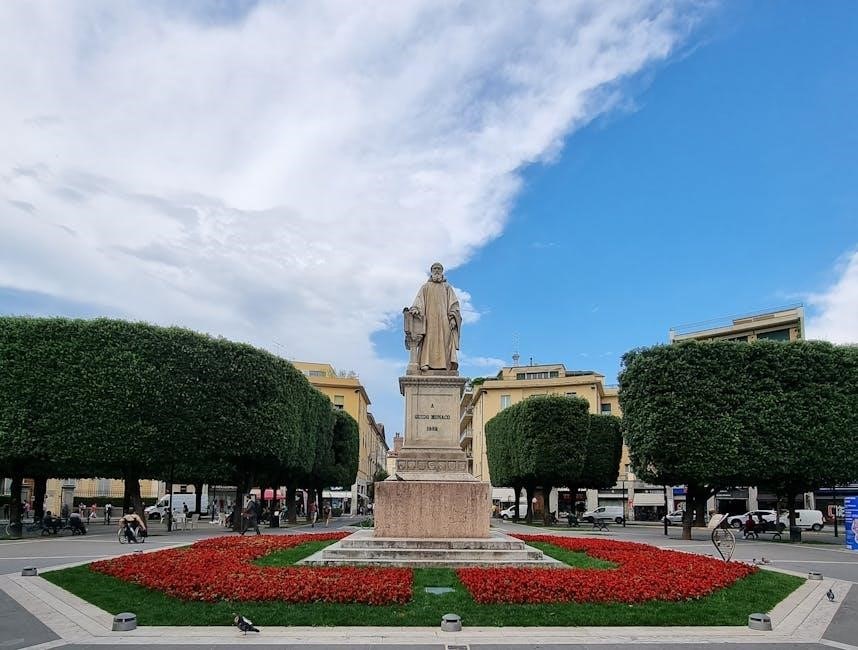
Guido Orefice’s relationship with Dora is a central theme in his life, marked by deep love and commitment. Their romance blossoms in the picturesque setting of Tuscany, leading to the birth of their son, who becomes the center of their universe. The bond between Guido and Dora is strengthened by their shared experiences and mutual support. As a father, Guido is deeply devoted to his son, ensuring his child’s well-being and happiness, even in the face of adversity. Their family dynamic is portrayed with warmth and tenderness, highlighting the resilience of their relationship amidst challenging circumstances.
Guido Orefice’s Role in “Life is Beautiful”
Guido Orefice, a Jewish man in Tuscany during WWII, exemplifies resilience and creativity. His role in “Life is Beautiful” highlights his humanity, hope, and the protection of his son.
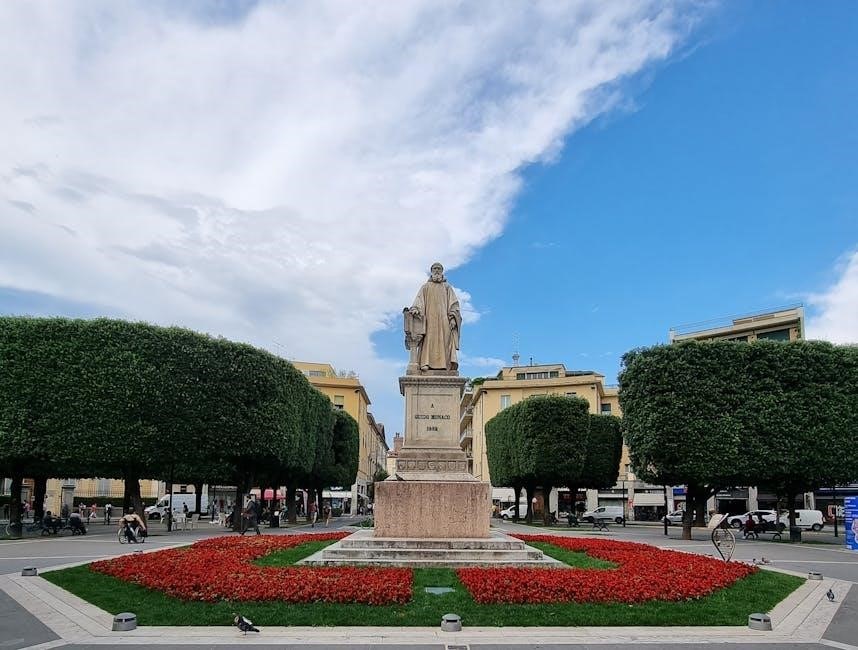
3.1 Character Traits and Personality
Guido Orefice is portrayed as a deeply compassionate and imaginative individual. His optimism and creativity shine through his ability to transform dire circumstances into moments of hope. Guido’s humor and wit serve as coping mechanisms, allowing him to maintain his humanity in the face of oppression. His unwavering dedication to protecting his son, Giosuè, highlights his selflessness and paternal love. Despite the horrors of the Holocaust, Guido’s resilience and determination to create a sense of normalcy for his child underscore his remarkable strength of character. His personality is a testament to the human spirit’s capacity for hope, even in the darkest times.
3.2 His Actions During World War II
During World War II, Guido Orefice’s actions were defined by his determination to protect his family and maintain hope. After being deported to a concentration camp with his son, Guido used his imagination and creativity to shield Giosuè from the harsh realities of their surroundings. He transformed the brutal environment into a game, convincing his son that their experiences were part of a grand adventure. Guido’s selfless acts, including sacrificing his own comfort and safety, underscored his devotion to preserving his child’s innocence. His actions not only upheld his family’s dignity but also symbolized resistance against oppression, leaving a lasting testament to the human spirit’s capacity to endure and inspire in the face of unimaginable hardship.
The Historical Significance of Guido Orefice’s Story
Guido Orefice’s story reflects the Holocaust’s profound impact, illustrating resilience and hope amidst unimaginable atrocities. His narrative serves as a poignant reminder of human strength during WWII.
4.1 The Holocaust and Its Impact
The Holocaust, a systematic persecution and extermination of six million Jews during World War II, profoundly shaped Guido Orefice’s story. His narrative unfolds against the backdrop of this atrocities, highlighting the immense suffering and loss endured by Jewish communities. The Holocaust disrupted families, destroyed livelihoods, and left deep emotional scars. Guido’s experiences reflect the broader context of Jewish identity during WWII, emphasizing resilience and hope amidst unimaginable hardship. The events of the Holocaust remain a critical part of history, serving as a reminder of humanity’s capacity for both cruelty and courage. Guido’s story, though fictional, resonates with the real-life struggles of countless individuals during this dark period.
4.2 Representation of Jewish Identity During WWII
Guido Orefice’s story serves as a powerful representation of Jewish identity during World War II. As a Jewish man in Tuscany, his narrative highlights the struggles and resilience of Jewish communities under Nazi oppression. His character embodies the humanity and dignity that persisted despite the horrors of the Holocaust. Through his experiences, the film portrays the emotional and cultural depth of Jewish life during this tumultuous period.
Guido’s relationship with his family, particularly his wife Dora and their son, underscores the importance of preserving Jewish heritage and identity. His actions and decisions reflect the broader themes of survival, hope, and the enduring strength of Jewish culture in the face of adversity.
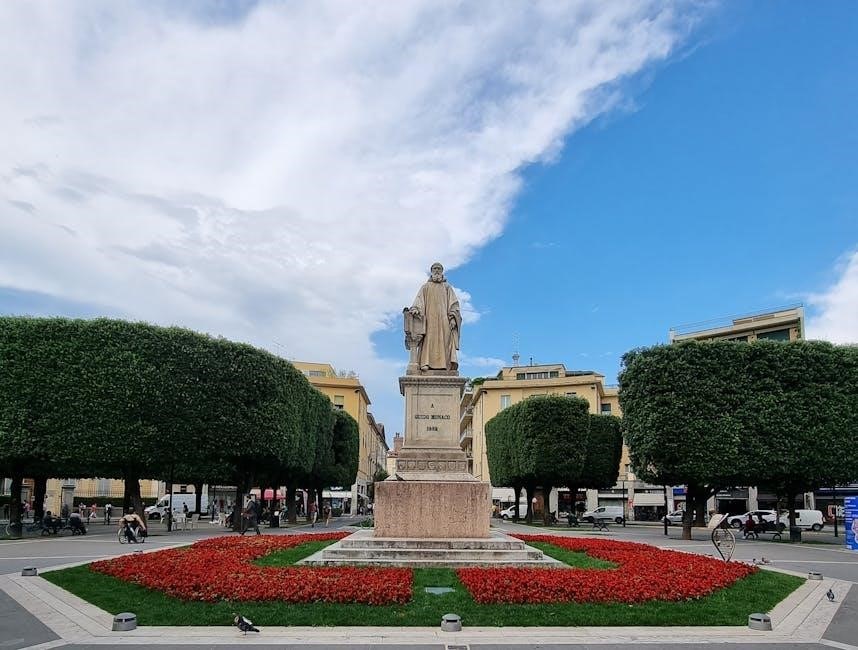
Guido Orefice’s Legacy and Cultural Impact
Guido Orefice’s legacy lies in his unwavering optimism and resilience, inspiring hope amid despair; His story symbolizes the strength of the human spirit and Jewish identity.
Through his character, Guido has left an indelible mark on modern storytelling, reminding audiences of the power of love, humor, and imagination in the face of adversity.
5.1 Influence on Modern Narrative and Film
Guido Orefice’s story has profoundly influenced modern narrative and film, particularly in its portrayal of hope and resilience. His character’s ability to transform hardship into moments of beauty and humor has inspired filmmakers to explore similar themes. The film’s balance of emotional depth and uplifting messages has set a benchmark for storytelling, encouraging creators to craft narratives that resonate deeply with audiences. Guido’s journey has also sparked conversations about the representation of Jewish identity and the Holocaust in cinema, making his legacy a cornerstone in the evolution of storytelling. His influence continues to shape how stories of struggle and hope are told in contemporary film and literature.
5.2 Symbolism of Hope and Resilience
Guido Orefice’s story is a powerful symbol of hope and resilience in the face of unimaginable adversity. His ability to maintain optimism and create moments of joy, even in a concentration camp, inspires others to hold onto hope. Through his imaginative storytelling and unwavering love for his family, Guido transforms despair into a narrative of survival and strength. His character represents the human spirit’s capacity to endure and find light in darkness, making him a timeless symbol of resilience. This symbolism resonates deeply with audiences, offering a universal message of hope and the strength of the human heart in the most challenging circumstances.
